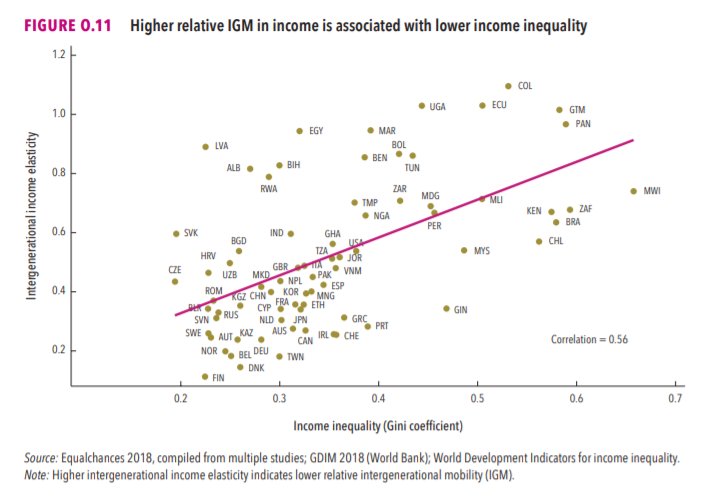sharebetter.org/wp-content/upl…
Over the next few tweets I'm going to highlight the key findings.
1/
2/
3/
The first question we asked is "Where is Airbnb activity located in New York, and how is it changing?" In the last year there's been a decisive shift in short-term rentals: Manhattan is stagnant or shrinking, and Brooklyn is booming.
4/
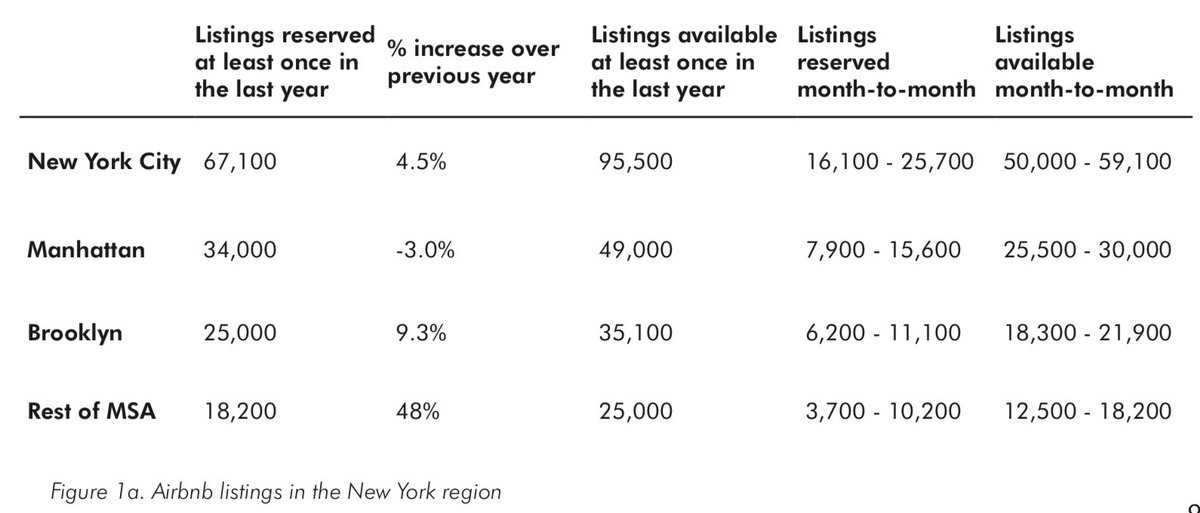
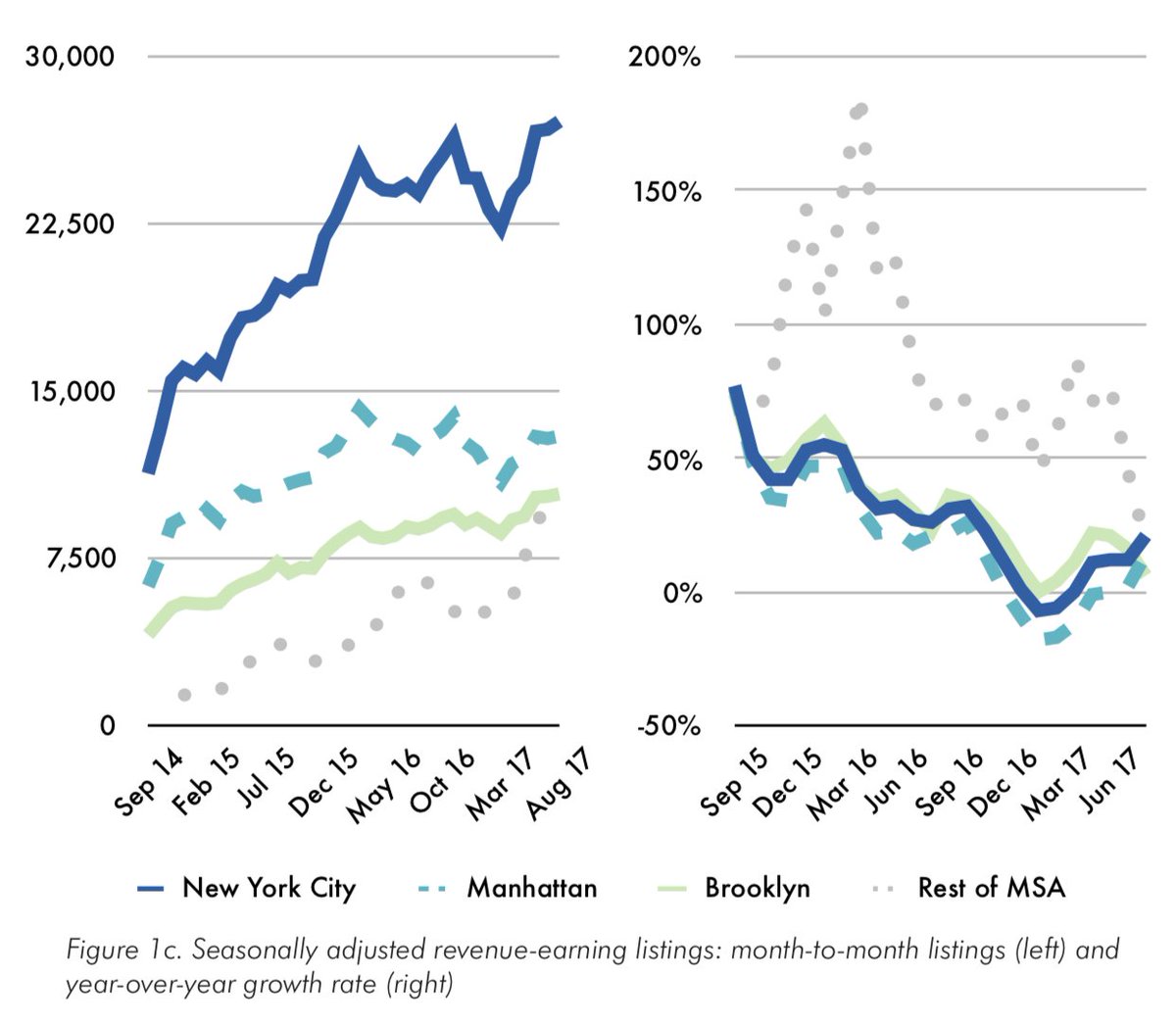
5/
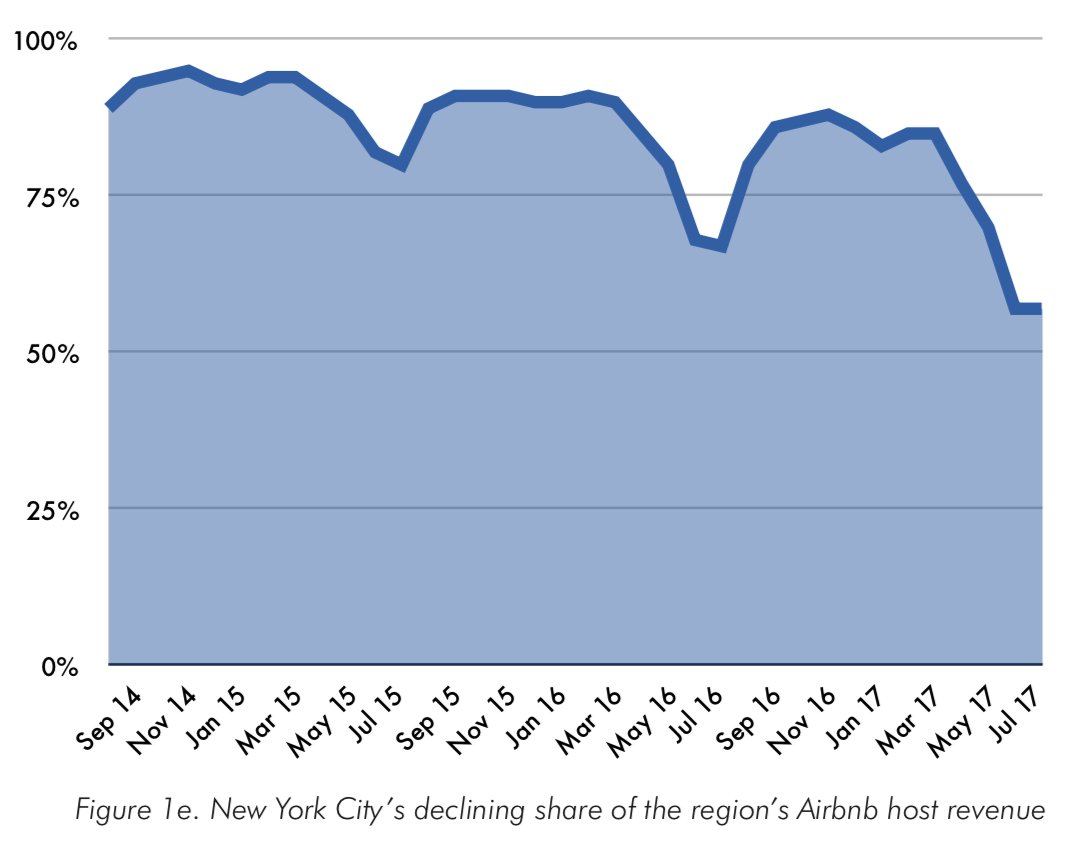
6/
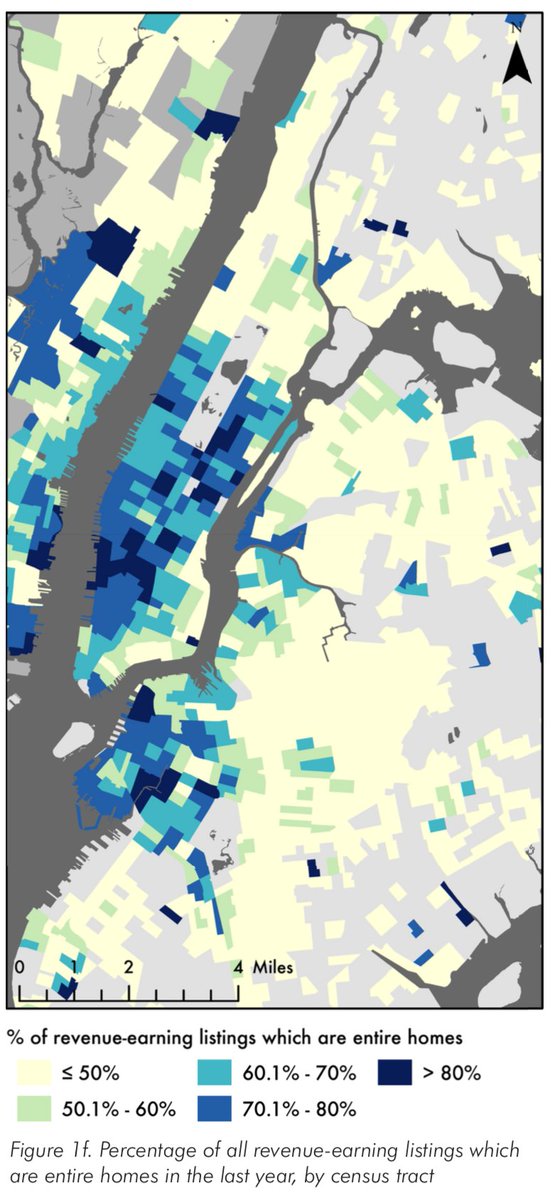
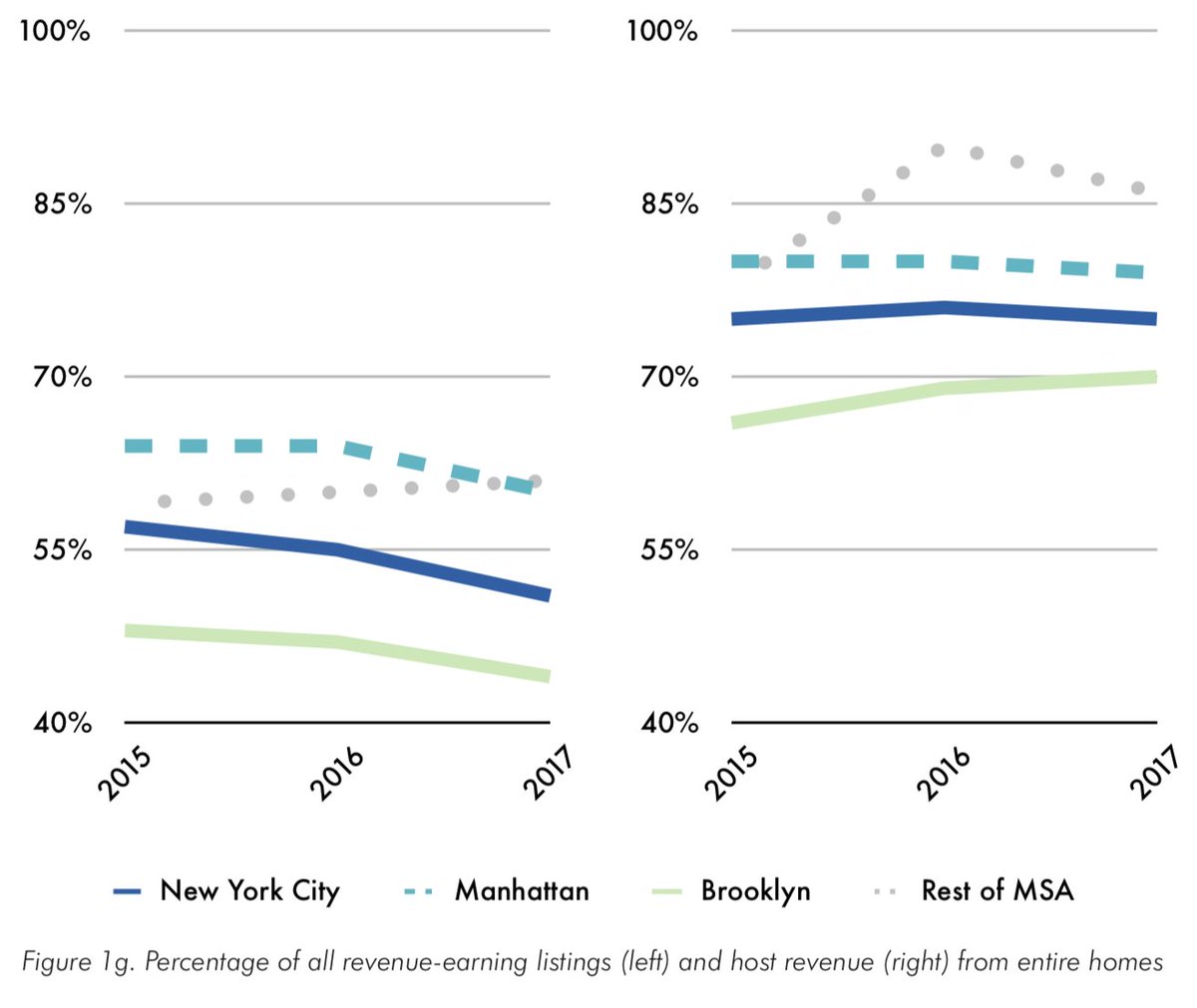
7/
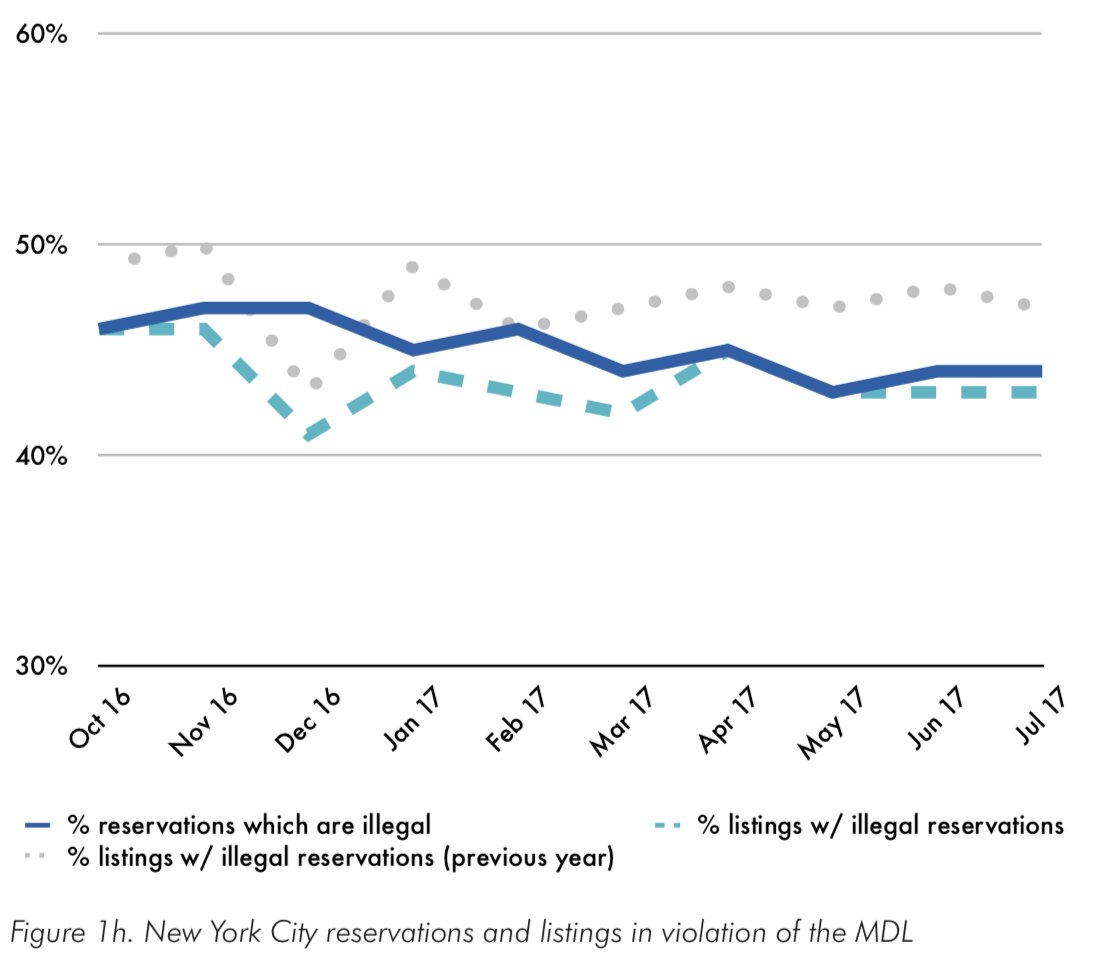
8/
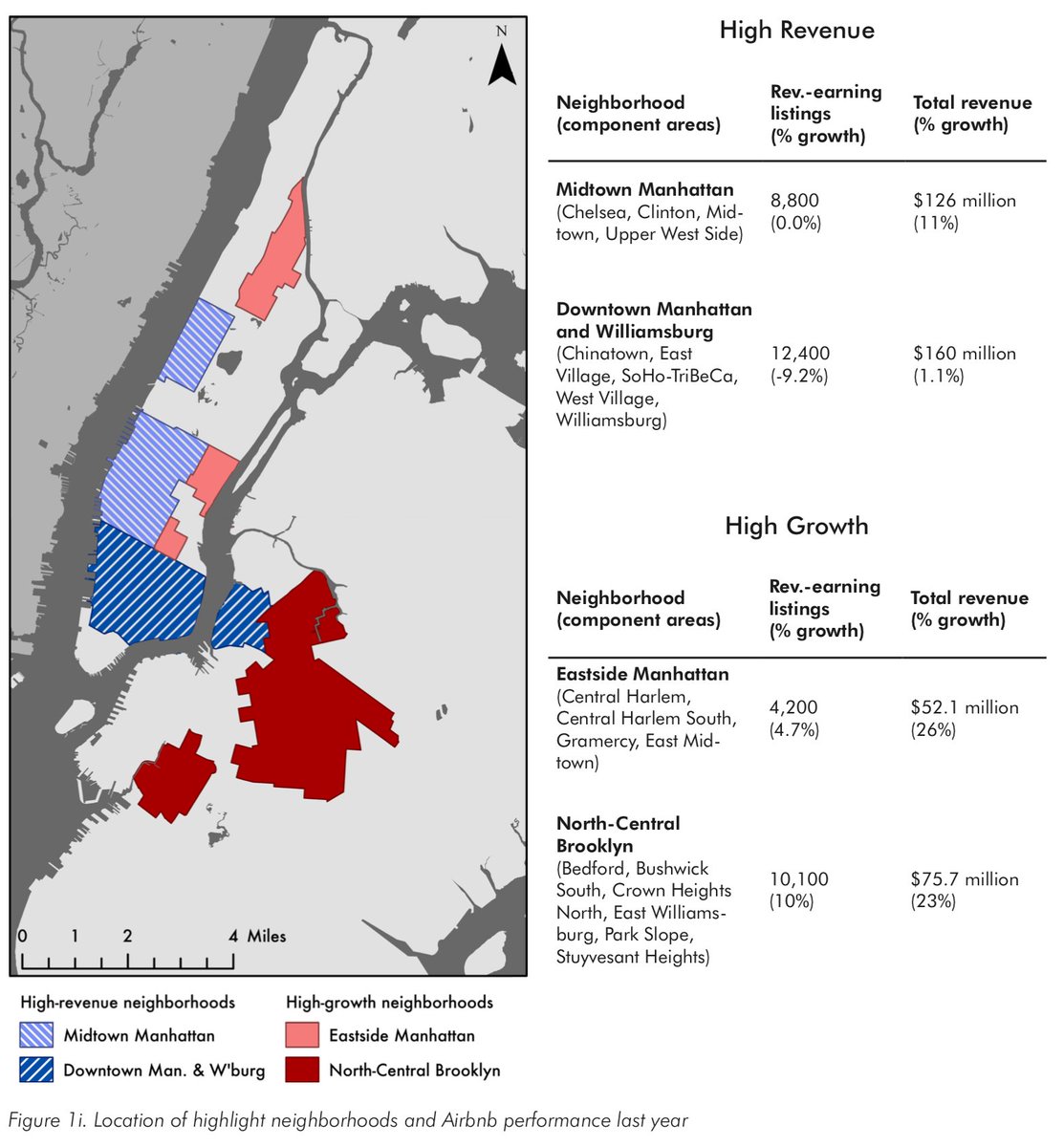
The top 10% of hosts made 48% of all revenue last year. The median NYC Airbnb host earned $5,200, but the median host from the top 10% earned $33,700—6 times as much.
9/
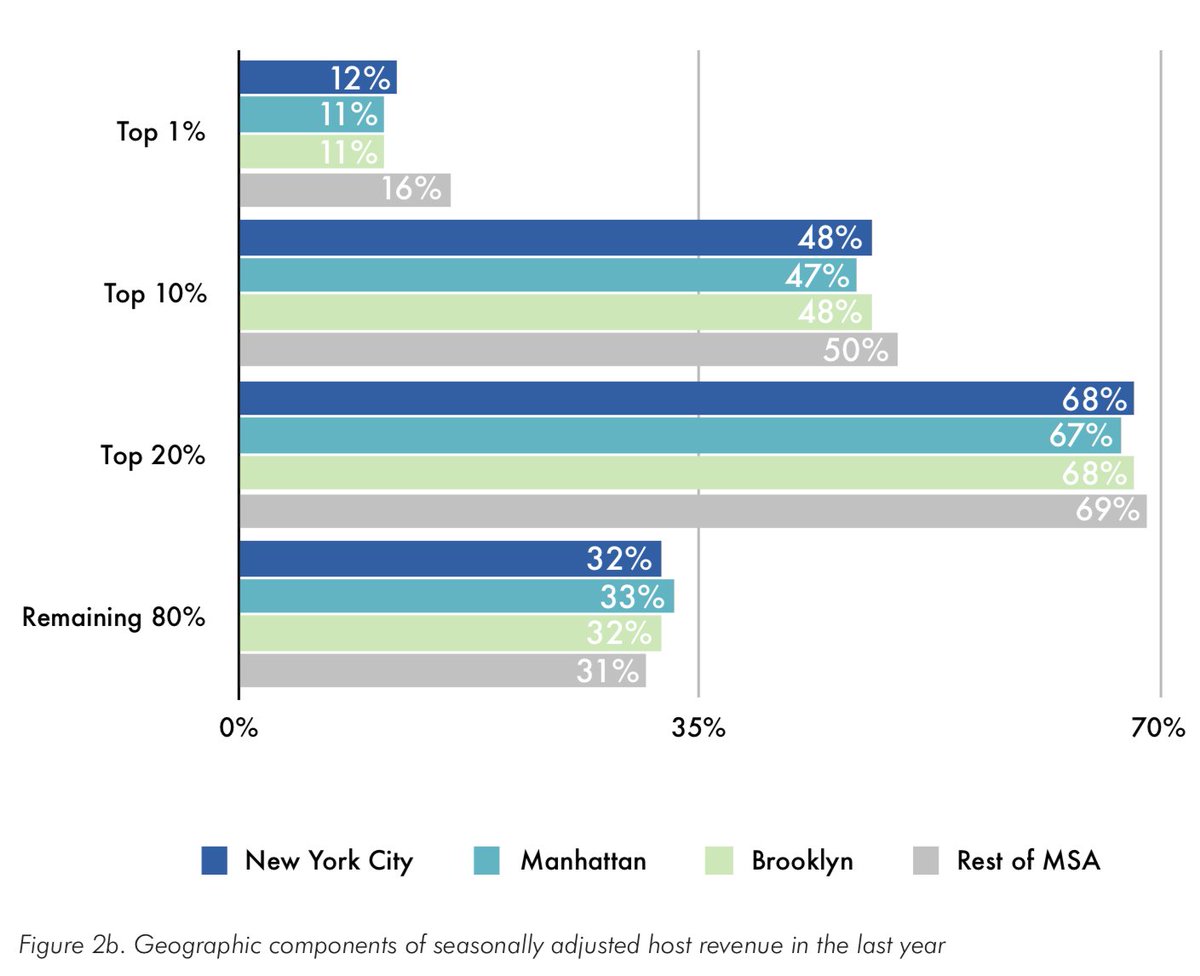
10/
11/
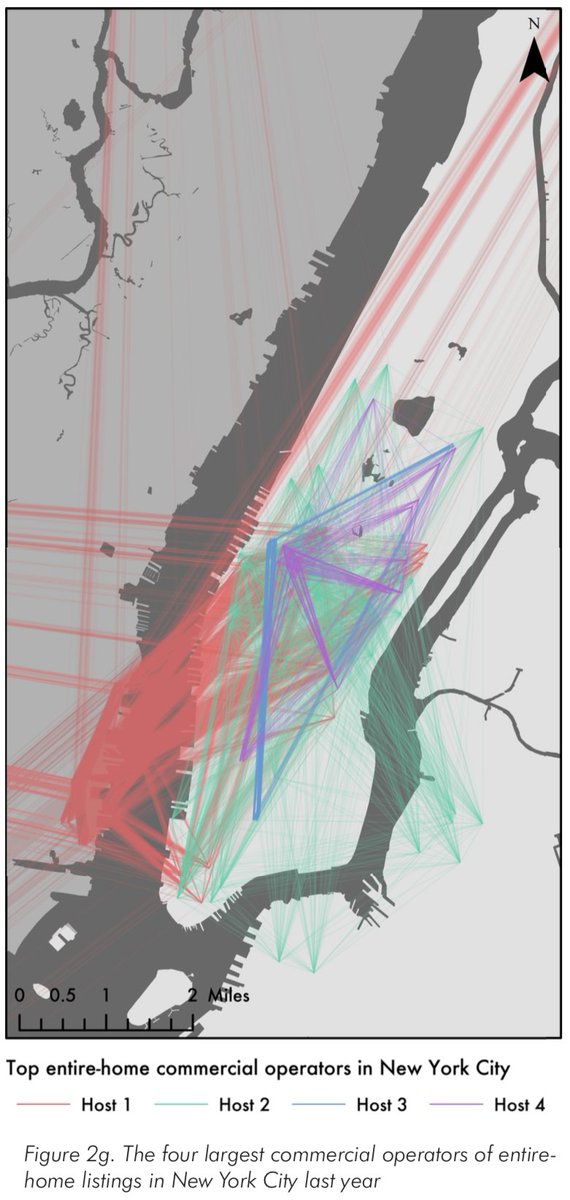
This is where the bad news comes in. We estimate Airbnb has taken between 7,000 and 13,500 units of housing off the market in NYC. These "full-time" STRs are growing much faster than the rest of the Airbnb market.
12/
13/
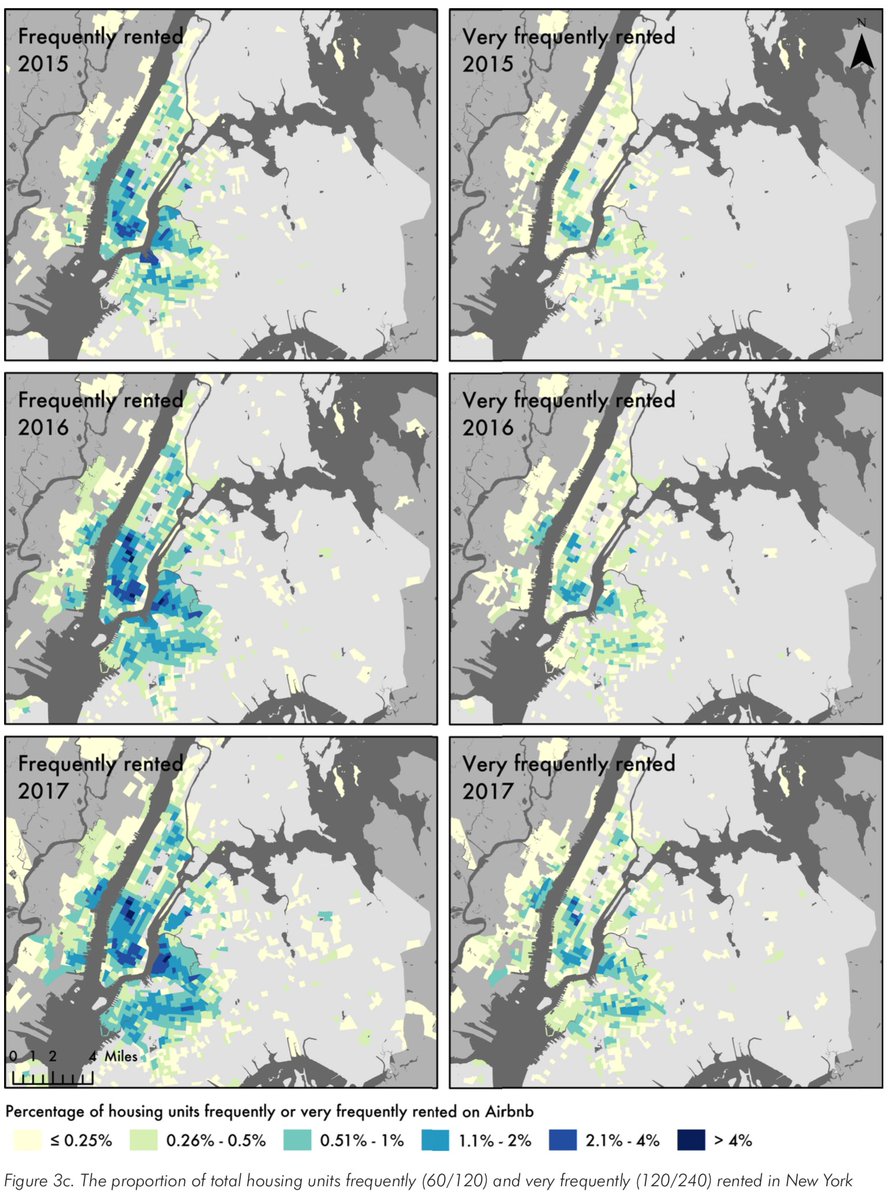
14/
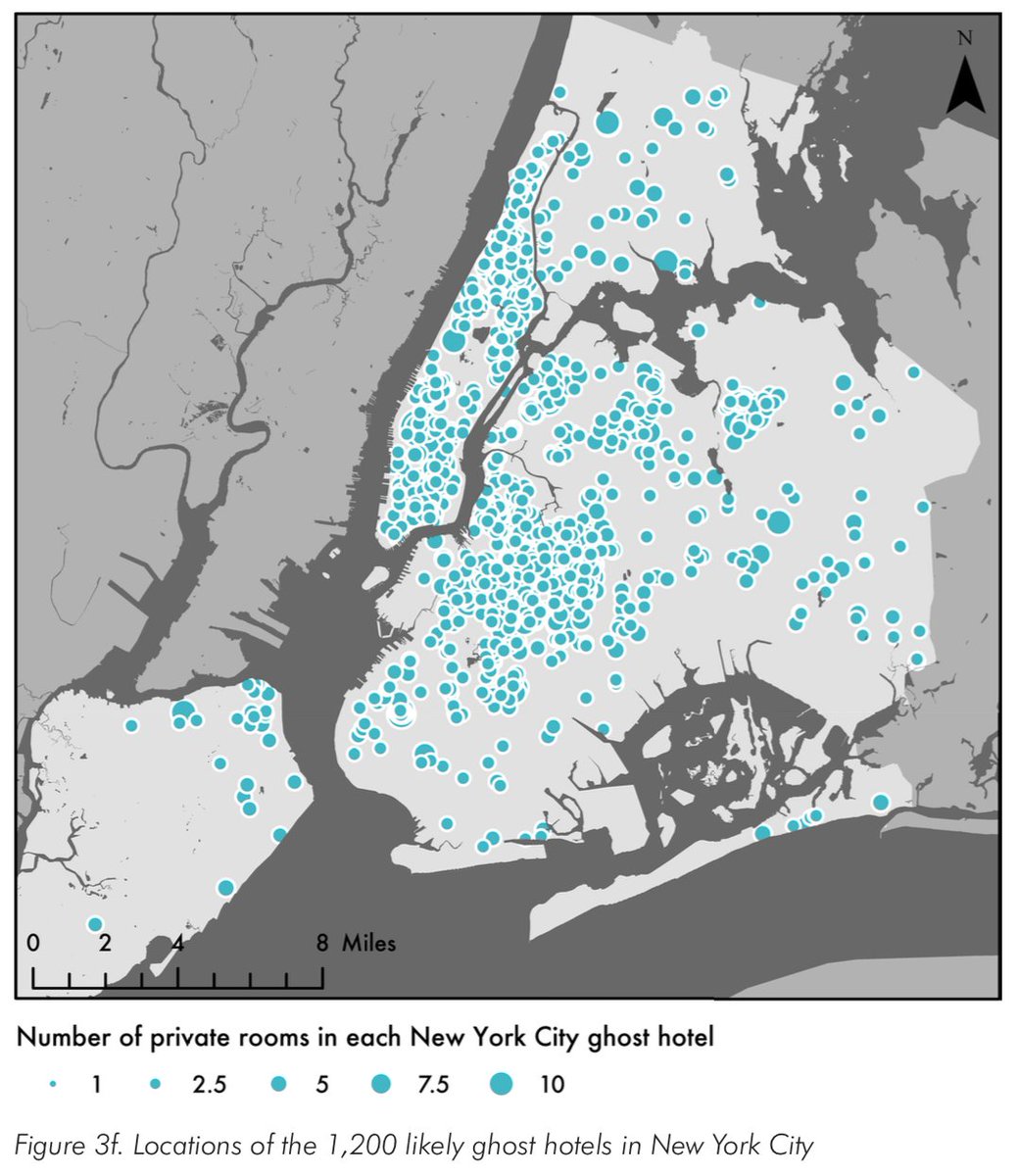
15/
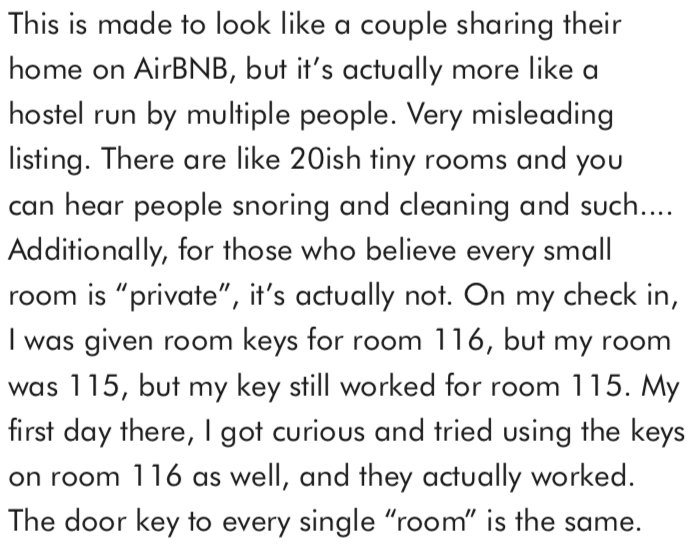
16/
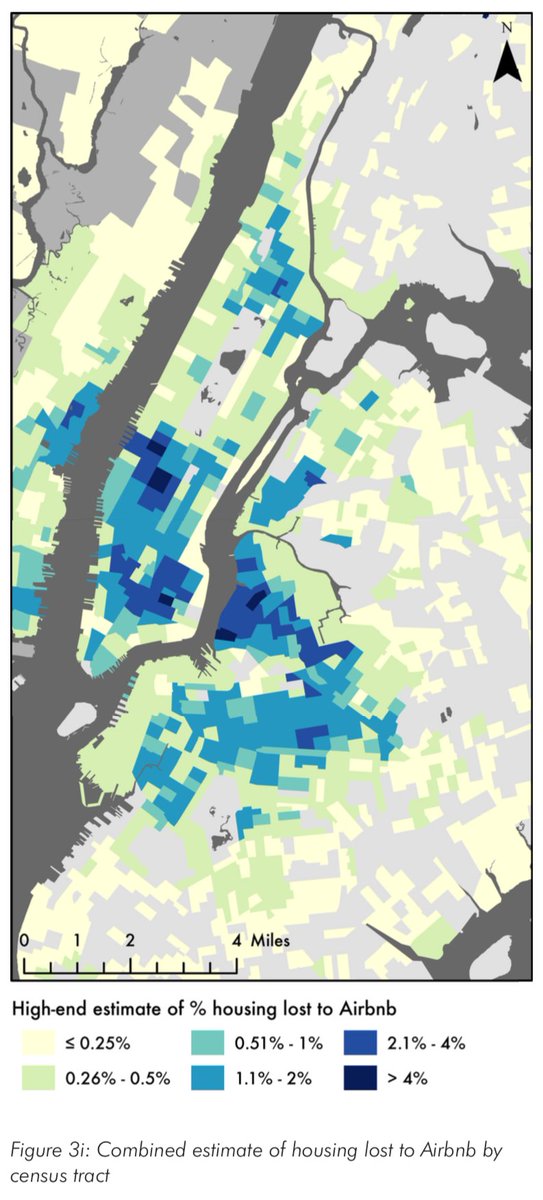
The short answer is "yes", and I have a separate paper undergoing peer review which makes this case in more detail: researchgate.net/publication/31…
17/
18/
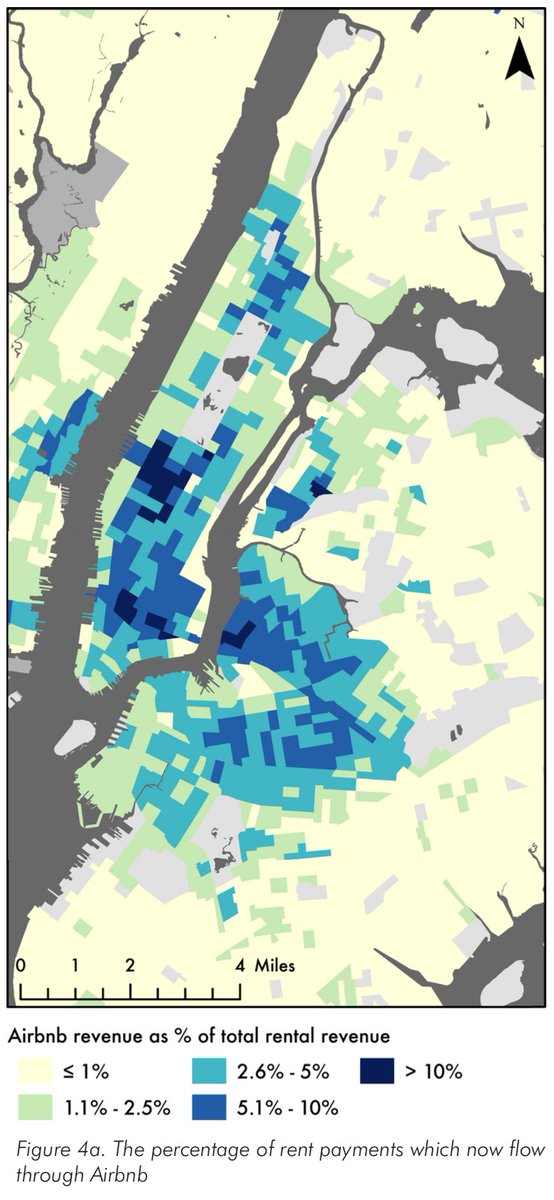
19/
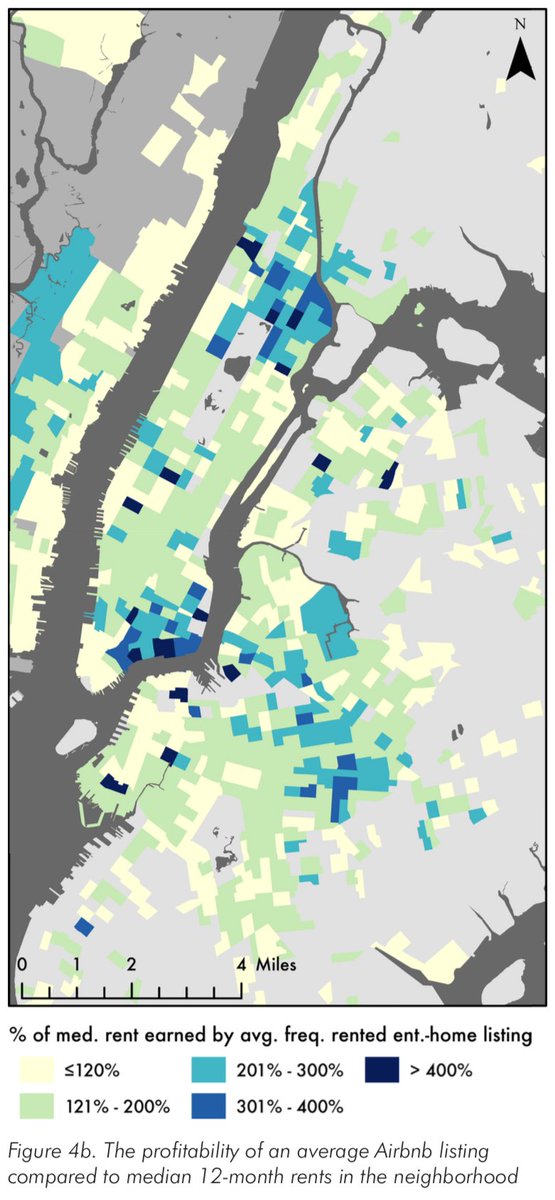
20/
21/
22/
In the next little while I'll retweet some of the press coverage the report has received, and answer any questions people might have.
23/23

